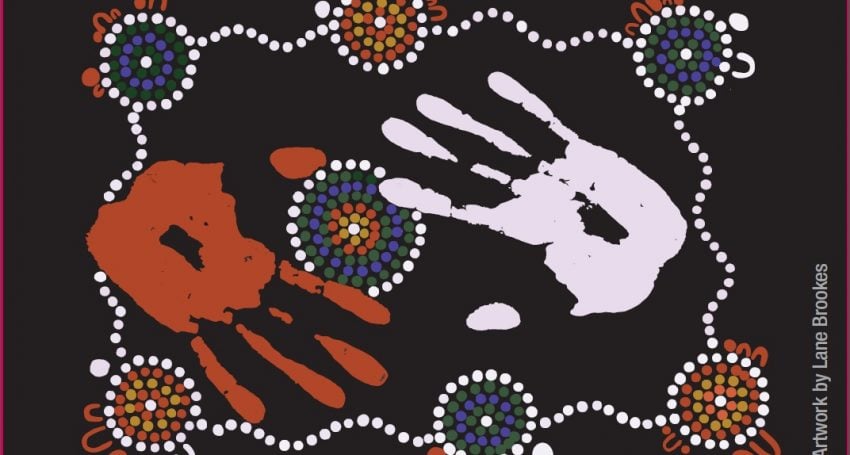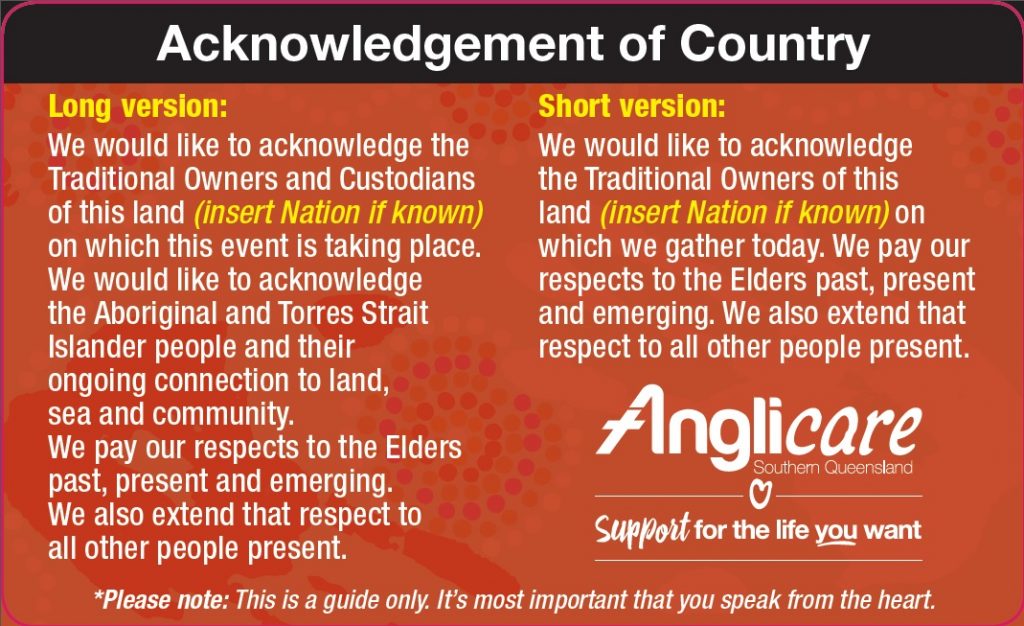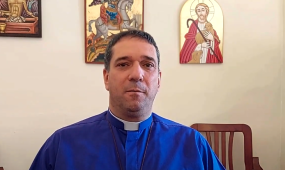New Anglicare SQ cards further Reconciliation journey
News
Anglicare SQ has introduced ‘Acknowledgment of Country’ cards to honour the people of the world’s longest continuously living cultures

Story Timeline
- St Mark’s supporting First Nations constitutional reform
- PATSIMAC group creating welcome and honouring the culture of the Yugambeh people
- Anglicare’s Reconciling Histories project
- Pilgrimage to Wontulp-Bi-Buya (WBB) College
- SEQ Friends of Nungalinya College – building cultural bridges
- Reconciliation: relationships and respect
- Reconciliation Prayer Spaces
- Exploring mission in a post-colonial Australian church
- First Nations ‘icons’ – a portal to Aboriginal and Torres Strait Islander Spiritualities
- Ancient Aboriginal practice meets Divine Christian call
- Stunning Aboriginal dot paintings to travel around our Diocese
Developing an Acknowledgement of Country card was important for Anglicare SQ and a significant step forward on our Reconciliation journey. Our Diocesan Innovate RAP looks at ways we can demonstrate value and respect for our First Australians.
The card provides Anglicare staff with knowledge in understanding the significance and meaning of Aboriginal and Torres Strait Islander cultural protocols, such as Welcome to Country and Acknowledgement of Country.
Anglicare Executive Director Karen Crouch said that “We want our First Nations people to feel welcomed, valued and respected here at Anglicare and the cards help us to demonstrate this.”
Advertisement
Working in the Governance, Risk and Assurance team, my Director, Amanda Davies, in championing cultural capability development, had asked if I could create an Acknowledgement of Country script to prompt her at meetings to carry with her. In seeing a similar card used by another organisation, she thought it could be a great idea as an early step to developing respect for, and understanding of, Aboriginal and Torres Strait Islander protocols used in the wider community. I agreed that it could also be a talking point to gain a better understanding of the differences between a Welcome to Country and an Acknowledgement of Country. We saw the card as being a practical resource to build staff cultural capabilities and confidence in offering an Acknowledgement.
Two scripts, a short and long acknowledgement, were developed through consultation with both First Nations and non-Indigenous staff. This was vital for gaining the diverse perspectives of First Nations people, but also challenging, as words can have very different meanings for individuals.
Examples of this include using both ‘Owners and Custodians’ and to change ‘insert name’ to ‘insert Nation’ as one staff member explained, “For me, it offers significant respect and the dignity of that place and our ways as it was before colonisation.”
Advertisement
It was also valuable for staff to appreciate that it is a script based on common practice. On the bottom of the card it states, “Please note: This is a guide only. It’s most important that you speak from the heart.” Our hope is that as a deeper understanding is reached, over time Anglicare staff will speak from the heart, not needing the script.
A common question asked is when do you offer an Acknowledgement of Country? What I would like people to understand is why it is important. Gaining a greater understanding of the deep connection we have with the land allows a greater appreciation for the respect protocols. For over 60,000 years, knowledge, understandings, systems and practices was embedded into every fragment of our being creating a spiritual, physical, social and cultural connection. This connection incorporates biodiversity, climate, land, culture, but of most significance it’s centrality to our existence, identity and health. Country includes the land, waters and skies being an integral part of our ‘Dreaming’ that weaves the intricate and multifaceted songlines of who we are, our creation stories, our lore (governance) and forms our beliefs.
The Acknowledgement of Country differs from a Welcome to Country in that it can be delivered by anyone, including non-Indigenous people. An Acknowledgement of Country is offered by individuals when they first speak at an event or meeting, as a respectful gesture that can be offered at any type of gathering, regardless of size or formality. At a larger formal gathering, the master of ceremonies or facilitator should offer an acknowledgement at the beginning and prior to introducing the representative conducting the Welcome to Country. Each consequent speaker can offer an acknowledgement prior to speaking. The cards are very popular and have been embedded into Anglicare’s ways of doing.

Anglicare Southern Queensland’s Acknowledgment of Country card





